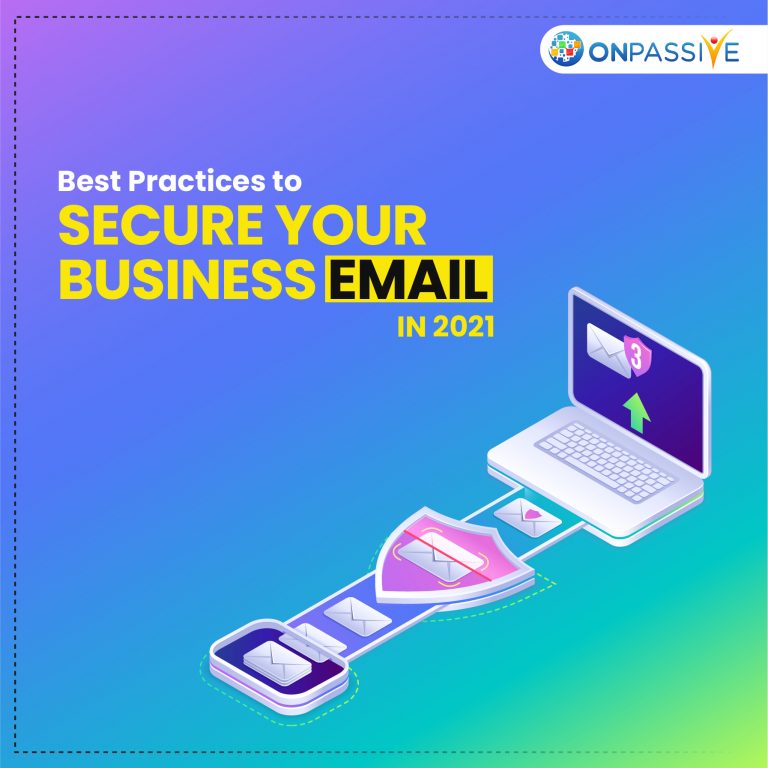
Business email security should be one of the top priorities for business owners as these emails contain confidential data or information and need to be protected. Hackers and spammers can easily target and hack your personal business email accounts if there is no proper protection to your business emails.
Most business emails tend to contain personal details of customers such as their bank account information, credit card details and other personal details, which are a breach of identity theft. In addition, few criminals try to gain access to web hosting accounts of a business, which may result in domain theft.
Cybercriminals often target email accounts due to the way the entire email process works. Emails are considered one of the least secure forms of communication as their contents are viewable by anyone who happens to be the recipient. Business email messages tend to pass through various servers, including numerous Internet Service Providers and mail clients involved in this list.
Each server will store multiple copies of every message, with additional copies stored on the sender and recipient’s devices. This way, even when you delete your original email, all other copies tend to exist, making them less secure compared to other forms of communication.
Therefore, keeping your business email confidential is a significant part of doing business. Strong email security practices will protect against spam, viruses, ransomware, mail breaches that involve the theft of passwords, attachments, sensitive information, and more.
Best Practices To Secure Your Business Email In 2021
The following are few best practices and security tips to keep your business emails secure in 2021:
Protect Your Email Address
Avoid putting your email addresses on any website that requires a subscription. Some free websites will actually allow anyone to register without requiring a subscription. Make sure the website is secure before giving out sensitive information. As much as possible, do not give out your business information or your email addresses on free websites that ask for it.
Cybercriminals constantly target various sources such as social media channels, blog posts or comments for finding new email addresses and try hacking them through these sources. Therefore, it is vital to keep your email address secure.
Use Strong Passwords
It is best to use passwords when you are sending emails. Use a password for your email and always add it to any messages you send out. Never reply to emails that ask for personal information such as your SSN or password. It is also important to be aware of responding to unsolicited emails from spammers or junk mailers.
Use a variety of formats and make sure to integrate a combination of alphabets with lowercase and uppercase letters, numbers and symbols with no connection to your personal data for your password. This step makes it difficult for cybercriminals to hack your account.
Keep Your Email Address Simple
Another one of the top email security tips to protect your business email privacy is to keep your email addresses simple and use short names with uppercase letters. Your email addresses should never include your name as the sender.
If you are unsure about a particular email address, do not check it. Spammers can create accounts on popular email services in order to steal your email addresses. Therefore, ensure your email address is simple.
Encrypt Your Connection
Businesses need to encrypt the connection between computers and their email servers to safeguard personal information from identity thieves. This prevents personal data of your business like usernames and email addresses from being stolen.
Some mailing services, like Gmail and Outlook, encrypt your connection automatically, while others may require you to alter your security settings manually. However, one great way to ensure your messages are always encrypted is to use a virtual private network ( VPN).
Use Two-factor Authentication
Two-factor authentication can be an extra security measure, as it requires anyone trying to log into your account to enter a temporary passcode sent to your phone by your email provider to prove it is you.
This is a great way to understand who is trying to log in to your account and provides extra safety to your email account. Therefore utilizing two-factor authentication is a great way to maximize your email security.
Beware Of Public WiFi Or Computers
Hackers tend to set up fake WiFi hotspots, enabling them to access and store the personal data of people using these hotspots. This provides them access to a host of information that includes people’s email usernames, passwords, bank account details, credit card numbers and more.
Therefore it is better to stay away from using public Wi-Fi, especially for signing in to online banking, checking your personal email, or trying to access anything that reveals sensitive and personal information to stay safe.
In addition, avoid opening emails that do not look familiar. Even if they are sent from reputable contacts, the sender could be someone you do not know. It is safe to ignore junk mail and deleted emails. These can act as a gateway to more dangerous activities.
By following these business email security as mentioned above, safeguarding your business emails can be more manageable.
Conclusion
Securing business emails is critical for business organizations to safeguard their personal data. Businesses need to be aware of the dangers of phishing scams and fraudulent emails and always ensure to use the most secure methods of transmitting sensitive information through emails.
It is also essential to keep an eye out and beware of clicking any malicious links in order to keep your business email secure. Therefore securing your business emails is crucial for protecting the sensitive data and operational systems of your business.


